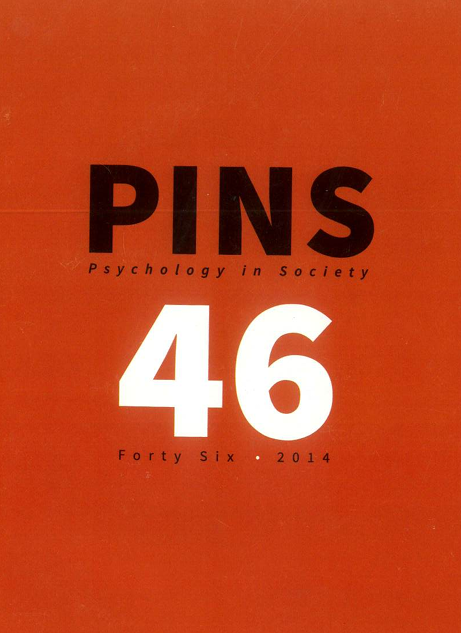How we learned to stop worrying and work with government
DOI:
https://doi.org/10.17159/2309-8708/2014/n46a12Keywords:
Critical psychology, violence, injury, government, PINS, HSRCAbstract
In the aftermath of the 1980s legislation introduced under the “total strategy” of the South African government under then president PW Botha, critical social scientist groupings reflected on the intellectual and programmatic responses required to counter the racist and undemocratic policies of the time. Since the formal demise of these polices and despite the profound political shifts in 1994 to representative government, questions that reflect on the contemporary role of critical social science are still considered pertinent. We reflect on what the orientations of social science to government in our new and evolving democratic dispensation should be, and whether critical scientists can remain critical and work with government, or whether engagement with the state, of necessity, compromises criticality. The extensive and sustained nature of violence and injury, a leading contributor to South Africa’s social and health malaise, has suggested that a coordinated, multi-sectoral and evidence-led partnership is required for its reduction. Our engagement with this issue has been through the development of a Strategic Framework for Violence and Injury Prevention, which we regard as indicative of some recognition by government of the inclusion of critical voices for an effective collective response. However, the critical scholars in this engagement process faced multiple challenges, including contrasting understandings of violence and injury, which may have diluted the contributions of critical scholarship.
“The HSRC cannot be ‘re-structured’ because it is and remains the government’s instrument, in the hands of the government to justify and legitimate the decisions and policies of the government. Research by bodies other than the HSRC must be encouraged” (Cloete, Muller, & Orkin, 1986: 45, emphases added).
Downloads
Downloads
Published
How to Cite
Issue
Section
License
This journal is an open access journal, and the authors' and journal should be properly acknowledged, when works are cited.
Authors may use the publishers version for teaching purposes, in books, theses, dissertations, conferences and conference papers.
A copy of the authors’ publishers version may also be hosted on the following websites:
- Non-commercial personal homepage or blog.
- Institutional webpage.
- Authors Institutional Repository.
The following notice should accompany such a posting on the website: “This is an electronic version of an article published in PINS, Volume XXX, number XXX, pages XXX–XXX”, DOI. Authors should also supply a hyperlink to the original paper or indicate where the original paper (http://www.journals.ac.za/index.php/pins) may be found.
Authors publishers version, affiliated with the Stellenbosch University will be automatically deposited in the University’s’ Institutional Repository SUNScholar.
Articles as a whole, may not be re-published with another journal.
The copyright of the article(s) lies with the author(s).
The copyright of the journal lies with PINS-psychology in Society.
The following license applies:
Attribution CC BY-NC-ND 4.0 - https://creativecommons.org/licenses/by-nc-nd/4.0/

